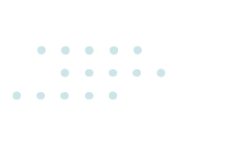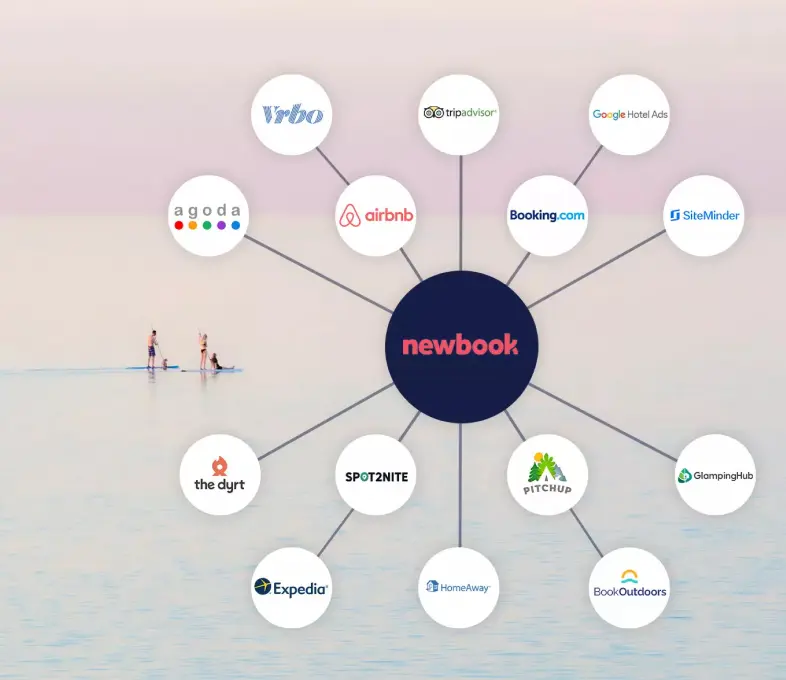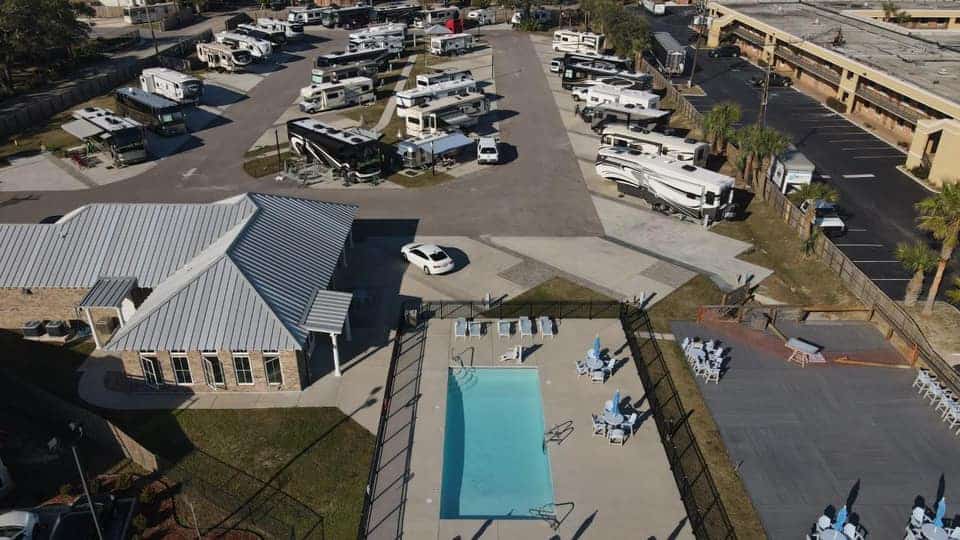A strong online presence and reliable reservation software are essential for accommodation providers to capture bookings. If direct booking is difficult or lacks options, guests will likely turn to online travel agencies (OTAs), which, while expanding your reach, take a cut of your revenue. Securing direct bookings is ideal, offering opportunities for loyalty programs, referrals, and exclusive discounts unavailable on OTAs.
Reservation software also simplifies managing OTA listings by enabling global updates across platforms, saving time and reducing errors through built-in channel management tools.
With countless options available, choosing the best hotel reservation software can feel overwhelming. This article breaks down the key considerations and features to help you find the best solution for your business.
What to Consider When Choosing the Best Hotel Reservation Software
electing the right hotel reservation software is a crucial decision that impacts your property’s operations, guest experience, and overall profitability. Here are the key factors to consider:
Budget
It’s important to set a realistic budget for the new reservations system software you’re about to invest in. Different vendors will have different cost structures. Here are a few common ones:
- Pay-Per-Room: Vendors charge based on the number of rooms, with discounts often offered for large hotels or multi-property businesses. This model typically includes a one-time setup fee of $500–$1,000.
- Tiered Model: Also called subscription pricing, charges vary by service level (e.g., basic, pro, premium) and the number of rooms covered. This model overlaps with pay-per-room pricing and is common in SaaS. Vendors often negotiate rates for larger providers. An example is Newbook, which customizes pricing based on customer needs.
- One-Time License: Customers pay a fixed fee to use the software, typically installed on-premises. This model involves no contracts or ongoing commitments but requires an upfront investment of at least a few thousand dollars.
Desired Outcomes
When choosing hotel reservation software, clearly define your objectives to ensure the solution meets your specific needs. For instance:
- Time Savings: Look for features like automated bookings, guest communication, and integration with other tools to reduce manual tasks.
- Cost Reduction: Software that includes bundled services, such as channel management or payment processing, can help reduce third-party fees.
- Enhanced Efficiency: Tools like centralized dashboards and real-time availability updates can streamline operations and ensure better coordination between departments.
- Improved Guest Satisfaction: Features like mobile check-in, personalized booking options, and automated guest communication (e.g., reminders and thank-you emails) can enhance the overall guest experience.
Having well-defined goals, whether for operational efficiency, revenue optimization, or superior service, helps you select software that delivers measurable results.
Customer Support
Reliable customer support ensures that any issues affecting operations are resolved quickly, minimizing disruptions. Key aspects to look for include:
- 24/7 Availability: Around-the-clock support is critical for hotels operating across different time zones or during peak hours.
- Support Channels: Ensure the provider offers multiple channels, such as live chat, email, phone, and a knowledge base, to address varying levels of urgency.
- Onboarding and Training: Comprehensive training resources, such as webinars, tutorials, and documentation, can help your staff get up to speed quickly.
- Response Times: Assess the company’s average response time for resolving technical issues, as delays can directly impact your bookings and guest satisfaction.
Cloud-Based Systems
Cloud-based hotel reservation systems provide unparalleled flexibility and scalability compared to on-premises software, making them a preferred choice for modern hotels. Benefits include:
- Accessibility: Manage operations remotely from any device with internet access, whether you’re on-site or traveling.
- Cost Savings: Cloud solutions eliminate the need for expensive on-site servers and maintenance costs, making them budget-friendly.
- Real-Time Updates: Seamless synchronization across devices ensures that all users have access to the most up-to-date information, reducing errors and double bookings.
- Data Security: Reputable providers offer secure cloud storage with regular backups and advanced encryption, protecting your data from cyber threats.
- Scalability: You can easily upgrade or expand the software as your business grows, adding new features or integrating additional tools. Most, if not all, vendors of web-based reservation software automatically push software updates so you don’t have to worry about manually checking and installing any available updates.
So you manage a hotel? We make it easy
Newbook is your all in one hotel management software. Talk to us today to learn how you can improve operations and increase bookings for your hotel.


Key Features of the Best Hotel Reservation Software
The best hotel reservation software should offer a comprehensive suite of features to enhance efficiency, improve guest satisfaction, and maximize revenue. Here’s an in-depth look at the key features to consider:
1. Easy-to-Use Hotel Booking Solutions
User-friendly software with intuitive interfaces ensures that both staff and guests have a smooth experience.
- For Staff: Features like drag-and-drop functionality for calendar management, real-time updates for availability, and simplified room assignments reduce training time and minimize errors.
- For Guests: A streamlined booking process, complete with clear pricing, optional add-ons, and instant confirmation, improves the user experience, encouraging direct bookings and reducing dependency on OTAs.
Newbook offers built-in online reservation software, complete with a variety of features to make bookings easier for guests and more efficient for accommodation providers. Upsells can be easily incorporated into the booking process, for example, to make it easy for guests to choose add-ons and upgrades that boost their vacation experience while at the same time taking pressure off of frontline hotel staff to sell these additions separately.
2. Channel Management for Online Reservation Systems
Hotel channel management is critical for maintaining visibility across platforms while avoiding costly errors.
- Inventory and Pricing Synchronization: The software should automatically update availability, images, descriptions, and pricing across OTAs like Booking.com, Expedia, and Airbnb, eliminating the risk of overbooking. When combined with dynamic pricing, this feature makes managing OTA listings largely hands-off.
- Centralized Reporting: A single dashboard displaying performance metrics from all channels makes it easier to analyze trends and make informed decisions, like whether to adjust your minimum and maximum pricing rates.
3. Automation
Automation capabilities reduce manual tasks and operational overhead. Automation isn’t meant to replace hotel staff, just take over tedious tasks and allow them to focus on things with a higher priority.
- Communication Automation: Automatically send booking confirmations, reminders, pre-arrival instructions, and post-stay surveys.
- Inventory Management: Keep room availability updated in real-time, ensuring accurate listings across all channels.
- Dynamic Pricing: Adjust rates automatically based on demand, occupancy, and seasonal trends to optimize revenue.
- Payment Processing: Automate invoicing and secure payment collection to simplify transactions for both staff and guests.
eBook: 5 Powerful Ways to Use Automated SMS
“We made an additional $7000 in one month by using SMS Late Check-Outs.” Find out how you can too!


4. Guest Management & Personalization
Comprehensive guest management features allow hotels to tailor the guest experience, fostering loyalty and repeat business.
- Guest Profiles: Track preferences, special requests, and booking history to personalize communications and services.
- Tailored Offers: Use data to create customized promotions or upsell additional services like spa packages, dining experiences, or room upgrades.
- Loyalty Programs: Integrate guest loyalty systems to reward repeat stays and build a strong customer base.
5. Secure Payment Gateways
Payment security is vital for protecting guest data and maintaining trust.
- Compliance Standards: Ensure the software adheres to PCI-DSS (Payment Card Industry Data Security Standard) regulations, safeguarding financial transactions.
- Multiple Payment Options: Support for credit cards, digital wallets, and international currencies caters to a diverse guest demographic.
- Fraud Protection: Built-in tools like tokenization and encryption prevent unauthorized access to sensitive information.
6. Mobile Compatibility
Mobile-friendly software is essential for modern hotel operations and guest convenience.
- For Staff: Enable staff to manage reservations, communicate with guests, and check room availability from smartphones or tablets, ensuring flexibility and real-time updates.
- For Guests: A mobile-responsive booking platform allows guests to browse, book, and manage their reservations on any device, catering to the increasing trend of mobile-first travel planning.
7. Scalability
As your hotel grows, the best hotel reservation software should scale seamlessly to accommodate increased demand.
- Adding Properties or Rooms: Easily expand the system to include new locations or additional inventory.
- Feature Upgrades: Look for a platform that offers optional upgrades, such as advanced analytics, CRM tools, or marketing modules, as your needs evolve.
- Compatibility with Common Third-Party Tools: It should be easy to integrate hotel management tools that you use every day with your reservation software. Some systems, like Newbook, offer an integrations store that makes plug-and-play possible for many common pieces of software that accommodation providers use.
8. Free Trial Period
A trial period provides an invaluable opportunity to evaluate the software.
- Hands-On Testing: Test the software’s usability, features, and integration capabilities in your unique environment.
- Risk-Free Decision: Ensure the system meets your operational needs without committing to a financial investment upfront.
9. Reviews
User reviews offer insights into the software’s real-world performance.
- Relevance: Focus on testimonials from similar businesses, such as hotels of the same size or in comparable markets.
- Key Metrics: Look for feedback on customer support quality, system reliability, and ease of use.
- Long-Term Satisfaction: Reviews from long-term users can indicate whether the software remains effective as business needs evolve.
10. Integration with Existing Hotel Management Systems
Seamless integration ensures that all your systems work together harmoniously.
- Property Management Systems (PMS): Combine reservation software with your PMS for centralized control over bookings, housekeeping, and guest check-ins.
- Point-of-Sale (POS) Systems: Integrated point-of-sale (POS) functionality streamlines restaurant, spa, and other in-house service billing.
- Customer Relationship Management (CRM): Leverage guest data for targeted marketing campaigns and loyalty programs.
How to Incorporate Online Hotel Reservation Software into Your Hotel Operations

Integrating online hotel reservation software into your operations is essential for modernizing your business, improving guest satisfaction, and maximizing revenue. However, the process comes with its challenges, including data security, legal compliance, and potential integration issues. Here’s how to seamlessly incorporate this technology while addressing common concerns:
Overcoming Challenges in Using Online Hotel Reservation Software
Adopting reservation software requires careful planning to address issues like training, cost, and system reliability. Start by choosing user-friendly software that requires minimal staff training and offers 24/7 support. Test the system thoroughly before full deployment to ensure it meets your property’s needs, and ideally, do a phased rollout. It’s also important to establish contingency plans for potential downtime to avoid disruptions in operations.
Data Security Concerns in Web-Based Reservation Systems
Data breaches are a significant risk in online systems, especially when handling sensitive guest information and payment details. To mitigate these risks:
- Choose software providers that comply with PCI DSS regulations.
- Implement end-to-end encryption for all transactions and communications.
- Regularly update the system and conduct vulnerability assessments to ensure robust security.
- Train staff on cybersecurity best practices, such as recognizing phishing attempts and managing access control.
Maintaining Hotel Reputation with Reliable Accommodation Reservation Software
Your reservation system directly impacts guest satisfaction and your hotel’s reputation. To maintain reliability:
- Select software with a proven track record of high uptime and minimal disruptions.
- Offer seamless booking experiences through mobile-friendly interfaces and intuitive designs.
- Monitor system performance regularly to address any technical issues before they affect guests.
A dependable system fosters trust among guests, leading to positive reviews and repeat bookings.
Legal Compliance in Electronic Reservation Systems
Compliance with local and international laws is critical when handling online bookings.
- Ensure the software adheres to GDPR (General Data Protection Regulation) if you operate in the EU or serve European guests.
- Abide by local taxation and short-term rental regulations, including the accurate collection and reporting of occupancy taxes.
- Implement clear cancellation policies and make them visible on your booking platform to avoid disputes.
Consult with legal experts to confirm that your reservation system complies with all applicable laws in your location.
Potential Integration Challenges with Website Reservation Systems
Integrating your online reservation software with your website and other operational systems (e.g., PMS, CRM, or POS) can be complex. Address these challenges by:
- Choose software that supports seamless integration with third-party tools and offers an easy-to-use API.
- Working closely with your IT team or software provider to ensure compatibility.
- Test integrations thoroughly to identify and resolve any issues before going live.
Smooth integration eliminates data silos, reduces manual workload, and ensures a unified guest experience.
Maximizing Revenue with the Best Hotel Reservation System
A well-designed hotel reservation system is more than just a booking tool—it’s a powerful revenue-generating asset. By leveraging advanced features and strategies, you can optimize operations, attract more guests, and boost profitability. Here’s how to make the most of your hotel reservation system to maximize revenue:
1. Implement Dynamic Pricing
Dynamic pricing is essential for maximizing revenue in the hospitality industry. A great hotel reservation system lets you adjust room rates in real-time based on factors like demand, seasonality, and local events. For instance, you can increase prices during peak travel seasons or lower them to attract guests during quieter times. This ensures you’re always competitive while making the most of high-demand periods.
2. Use Channel Management to Expand Reach
Effective channel management is a game-changer for increasing visibility. Your reservation system should seamlessly sync your availability and pricing across multiple OTAs. By reaching a wider audience and preventing double bookings, you can capture more reservations and maintain a strong presence across platforms.
More bookings, more often with our built in channel manager
Newbook is your all in one property management software. Talk to us today to learn how you can inprove operations and increase bookings for your business.


3. Automate Guest Communication
Automation isn’t just a time-saver—it’s a revenue booster. Use your system to send automated booking confirmations, pre-arrival details, and personalized post-stay offers. These touches enhance the guest experience, encouraging repeat bookings and positive reviews, which lead to higher occupancy rates.
4. Optimize Upselling and Add-Ons
Maximize revenue per guest by offering add-ons like room upgrades, spa packages, or special experiences during the booking process. Many advanced reservation systems allow you to include these options, making it easy for guests to customize their stay and for you to generate additional income.
5. Leverage Comprehensive Reporting and Analytics
Data is key to understanding and improving your performance. Use your reservation system’s analytics tools to track occupancy rates, revenue trends, and booking sources. These insights help you identify what’s working, optimize your strategies, and uncover new opportunities for growth.
Top hotel reservation metrics to track are outlined in the table below:
| Metric | Description | Why it Matters |
| Occupancy Rate | Percentage of available rooms sold during a specific period. | Measures how effectively your hotel fills its rooms. |
| Average Daily Rate (ADR) | Average revenue earned per occupied room. Formula: Total Room Revenue ÷ Rooms Sold. | Indicates the average pricing strategy and revenue generation. |
| Revenue per Available Room (RevPAR) | Revenue generated per available room. Formula: ADR × Occupancy Rate. | Combines occupancy and pricing to show overall performance. |
| Booking Lead Time | Average time between a booking and the guest’s check-in date. | Helps plan marketing campaigns and pricing strategies. |
| Direct Booking Ratio | Percentage of bookings made directly through your website versus OTAs. | Reduces OTA commissions and builds guest loyalty. |
| Cancellation Rate | Percentage of total bookings canceled during a specific period. | Helps identify potential booking issues or policy adjustments needed. |
| Market Segment Analysis | Breaks down bookings by customer type (e.g., leisure, corporate, group). | Helps tailor marketing and services to your primary audience. |
| Length of Stay (LOS) | Average duration of guest stays. | Affects pricing, promotions, and operational planning. |
| Booking Source Analysis | Tracks where bookings originate (OTAs, direct, social media, etc.). | Provides insights into the effectiveness of marketing channels. |
| Repeat Guest Ratio | Percentage of returning guests compared to total guests. | Indicates guest loyalty and satisfaction. |
| Revenue Breakdown by Room Type | Tracks revenue generated by different room categories. | Identifies high-performing room types and informs upgrade opportunities. |
| Upsell Revenue | Revenue generated from add-ons like room upgrades, spa services, or packages. | Highlights additional income opportunities beyond room bookings. |
| Booking Conversion Rate | Percentage of website visitors who complete a booking. | Indicates the effectiveness of your website and booking process. |
| Distribution Cost per Booking | Average cost associated with each booking source, including OTA commissions and marketing expenses. | Helps optimize channel strategy by focusing on cost-effective sources. |
6. Focus on Direct Bookings
Encourage guests to book directly through your website by integrating a user-friendly booking engine into your system. Offer incentives like exclusive discounts or perks for direct bookings to reduce dependency on OTAs and avoid commission fees. OTA listings are still great for expanding your reach, as we mentioned above, and listing with them can also encourage guests to book directly with you through the billboard effect. This phenomenon offers insight into people’s behavior when browsing online—in many cases, they will see your listing on an OTA, keep it in mind, and then visit your website directly when they finally do decide to book to reserve directly with you. On the other hand, a returning customer is more likely to book directly with you than visit an OTA since they already know your business.
Why Newbook Offers the Best Hotel Reservation System

Newbook is a comprehensive platform that streamlines all facets of property management, from handling reservations to managing guest interactions. With its intuitive design and straightforward navigation, the software is easy to use, whether you’re a beginner or a seasoned professional. Its familiar interface ensures a smooth learning curve, allowing accommodation providers to integrate it into their operations effortlessly. As a versatile Airbnb property management solution, Newbook is built to accommodate both new users and experienced managers, making it an ideal choice for businesses of all sizes.
- All-in-One Platform: Newbook provides an integrated solution that combines property management, online booking, and channel management into a single, user-friendly platform. This consolidation simplifies operations, reduces the need for multiple software solutions, and streamlines workflows.
- Unlimited Channel Listings: Unlike many systems that charge extra fees beyond a set number of listings, Newbook allows unlimited channel listings without additional costs. This feature enables properties to maximize their exposure across various online travel agencies (OTAs) and booking platforms, attracting a broader audience without incurring extra expenses.
- Dynamic Pricing Integration: Newbook’s dynamic pricing tools adjust room rates in real time based on demand, seasonality, and market trends. This ensures optimal pricing strategies that maximize occupancy and revenue, keeping your property competitive in the market.
- Centralized Dashboard: The system features a centralized dashboard that allows management of reservations, guest communications, and analytics all in one place. This centralized approach saves time and effort, providing a holistic view of operations and performance metrics.
- Automation of Routine Tasks: Newbook automates repetitive tasks such as sending booking confirmations, payment reminders, and post-stay surveys. Automation reduces manual workload, minimizes errors, and allows staff to focus on delivering exceptional guest experiences.
- Mobile Accessibility: With a mobile-responsive interface, Newbook enables property managers to oversee operations on the go. This flexibility ensures that you can manage bookings, communicate with guests, and monitor performance from any location, enhancing responsiveness and efficiency.
- Customizable Guest Portal: Newbook offers a customizable guest portal that enhances the guest experience by providing personalized self-service options for check-ins, payments, and special requests. This personalization fosters guest satisfaction and loyalty.
Newbook also has a 99.99% uptime guarantee, ensuring exceptional reliability. Here’s how it compares to the 99% uptime offered by many other PMS/RMS solutions:
| 99% Uptime (Standard PMS/RMS Solutions) | 99.99% Uptime (Newbook) |
| Potential downtime of 3 days, 15 hours, and 39 minutes per year. | Potential downtime of only 52 minutes and 35 seconds per year. |
With this high level of uptime, you can trust Newbook to remain operational and dependable, handling your revenue management needs with minimal to no interruptions.
Conclusion
The right hotel reservation software is more than a booking tool—it’s a cornerstone for efficient operations and revenue growth. By understanding your business’s unique needs, exploring essential features, and addressing potential challenges, you can integrate a system that enhances both guest satisfaction and profitability. Solutions like Newbook offer comprehensive tools to optimize your property’s performance, combining ease of use, advanced functionality, and unmatched reliability. With the right software in place, you’re well-equipped to meet the demands of a competitive hospitality industry while delivering exceptional service to your guests.
Reach out to Newbook today to learn more about our software through a demo or discuss pricing.
So you manage a hotel? We make it easy
Newbook is your all in one hotel management software. Talk to us today to learn how you can improve operations and increase bookings for your hotel.



